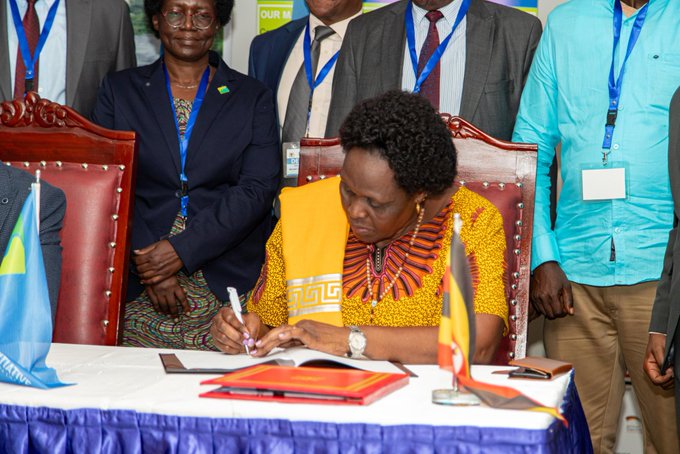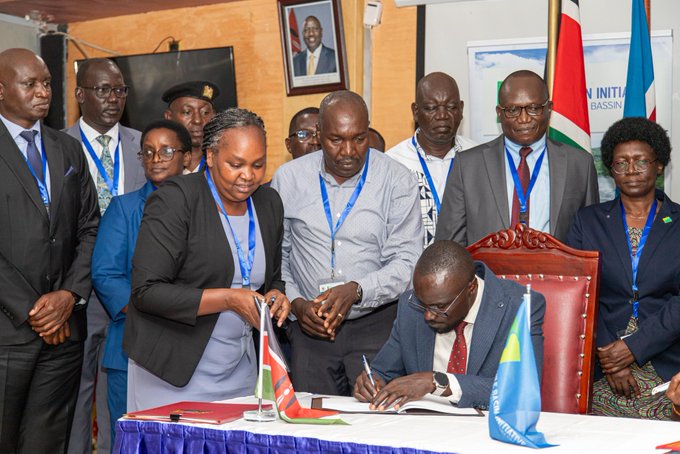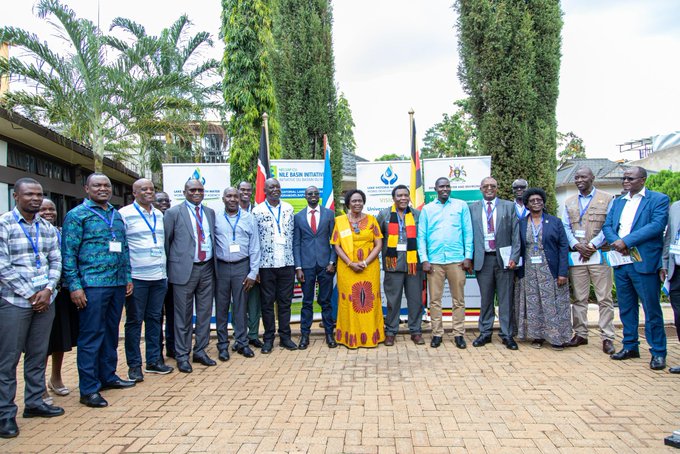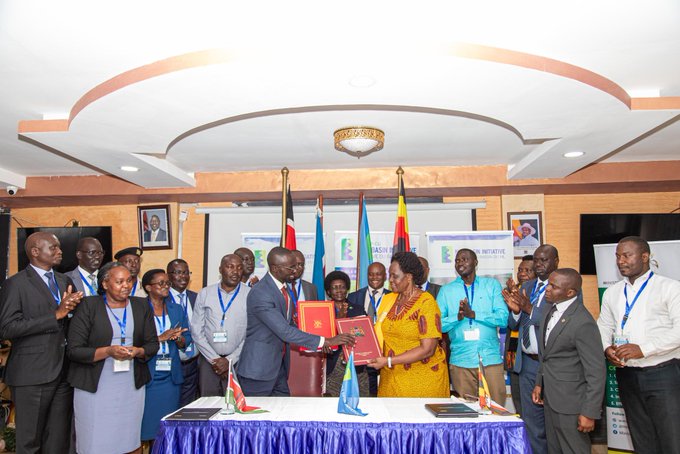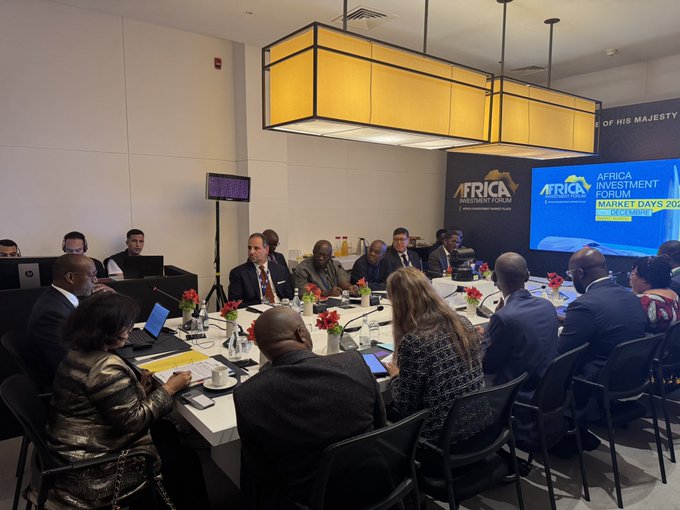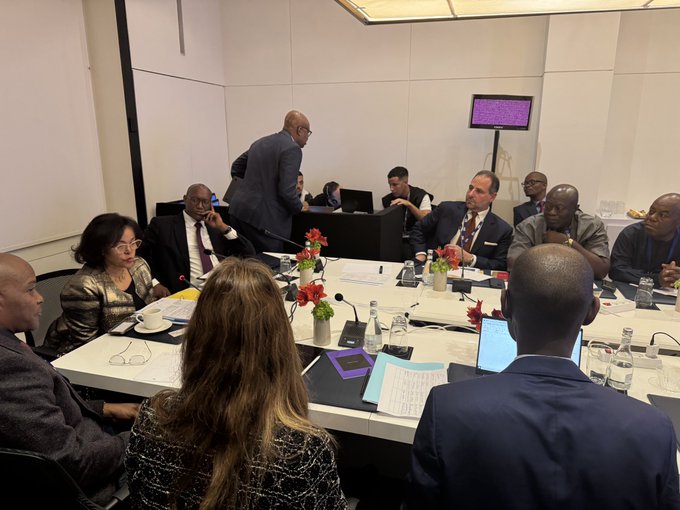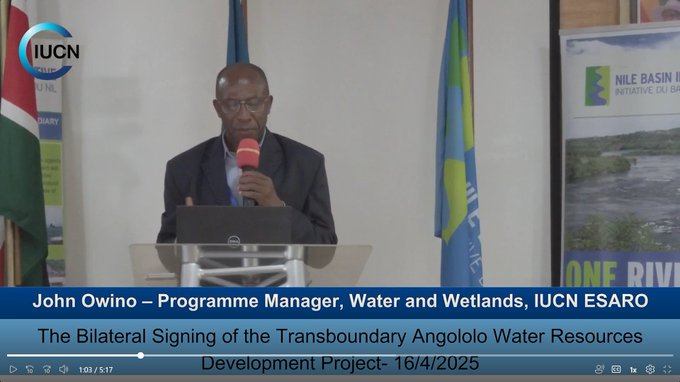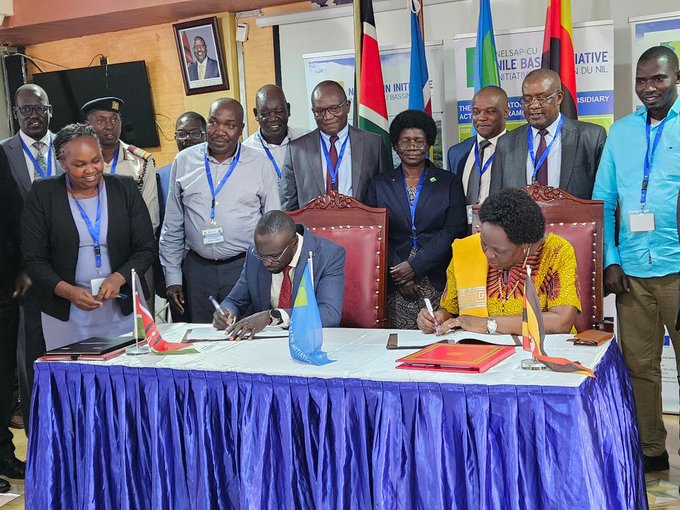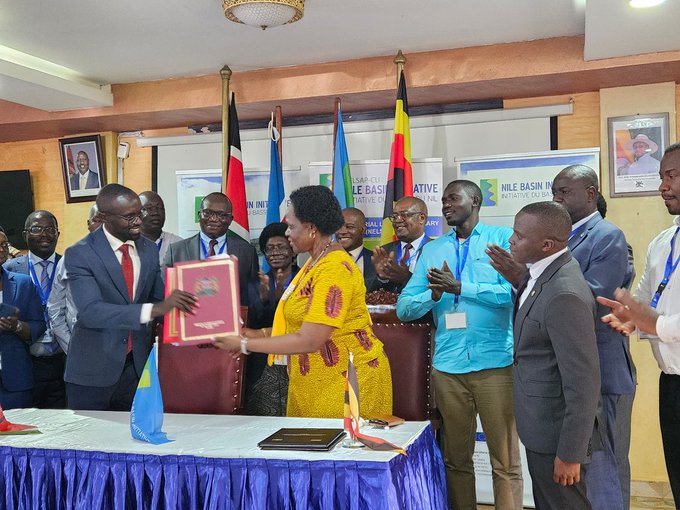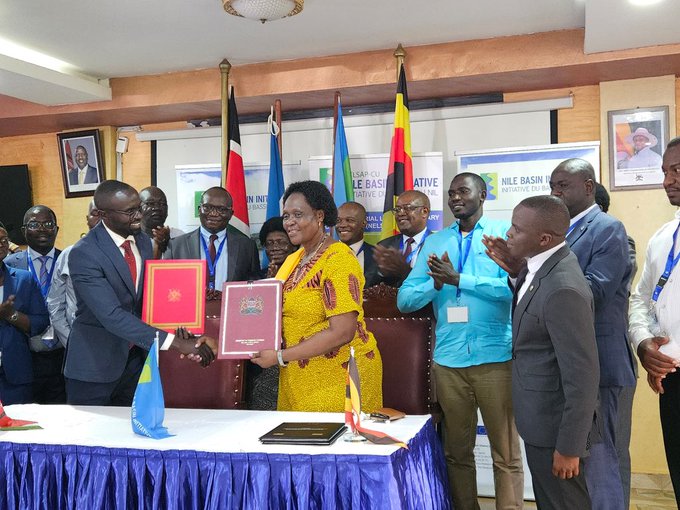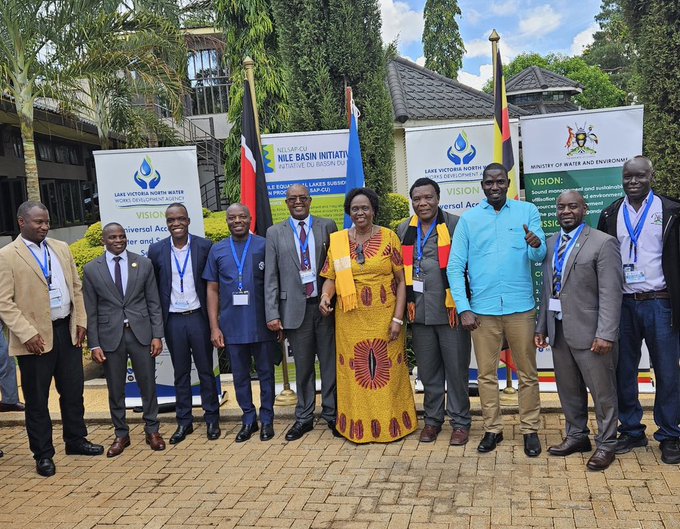BUSIA, Kenya – A bilateral agreement for the joint implementation of the Angololo Multipurpose Water Resources Development Project (AMWRDP) has been signed by Kenya and Uganda.
Cabinet Secretary, Ministry of Water, Sanitation, and Irrigation, Eric Mugaa, signed on behalf of the Kenyan government, while Beatrice Atim, Minister of Water and Environment, signed on behalf of the Ugandan government.
The project’s implementing agencies include the Ministry of Water, Sanitation, and Irrigation in Kenya, the Ministry of Water and Environment in Uganda, and NELSAP-CU/Kigali, Rwanda.
Regional Coordinator NELSAP-CU/Kigali, Rwanda, Dr. Isaac Alukwe, speaking at a joint press conference at the Hotel Breeze in Busia town, stated that the project’s bilateral agreement was signed after a one-day workshop for representatives from Kenya and Uganda on the project’s progress to date.
This evening, I joined Hon. Beatrice Atim Anywar, Uganda’s State Minister of Environment, in Busia County to sign the $137 million Transboundary Angololo Water Resources Development Project agreement, to enable NELSAP start resources mobilization. Spanning the Sio-Malaba-Malakisi
Kenya and Uganda have invested across the border in the Angololo resource development project as part of the Nile Equatorial Lakes Subsidiary Action Program (NELSAP).
In 2010, the project was identified. It seeks to improve energy, food, and water while fostering regional collaboration and trade.
Ten nations—Kenya, Uganda, Tanzania, Burundi, Rwanda, the Democratic Republic of the Congo, South Sudan, Sudan, Ethiopia, and Egypt—are covered by NELSAP.
“We are prepared for the role as NELSAP. We’ve already put on our work gloves. Only the nations have the potential to postpone the project’s execution,” said Dr. Alukwe, the former Busia Water and Environment County Executive Committee member (CECM).
Where project implementors can borrow additional loans
Dr. Alukwe, who served in the Busia County government between 2018 and 2021, further said:
“We need the necessary documentation that may make us move forward in terms of seeking funding from development partners, including the World Bank, the African Development Bank, the Asian Arab Bank, among others.”
According to him, the water supply component will serve 270,000 people, with 135,000 people served in each nation.
“We are considering establishing a One Stop Border Post on the Dam in addition to jobs, CSR, and value addition. Trade between the partner states will increase as a result,” he stated.
I co-chaired the Angololo Multipurpose Water Resources Development Project Deal Room alongside the @kevinkariuki14 , VP at the @AfDB_Group at AIF 2024.This USD 132.15 million project is a game-changer for East Africa, featuring a 31.6 MCM composite dam, 1.3 MW hydropower plant,
Regarding the project’s benefits, Dr. Alukwe stated that it is tackling three or four Sustainable Millennium Goals (SDGs) and that it has 4000 hectares of irrigation in both Kenya and Uganda.
“We can barely irrigate 1,800 hectares due to the Kenyan terrain. The terrain on the Ugandan side permits irrigation of just over 2000 hectares, or roughly 53% of Uganda and 47% of Kenya. You know, irrigation has to do with climate change. This is a strong tactic. It’s a plan for food security. Therefore, we can irrigate during droughts since the reservoir has water,” Dr. Alukwe explained.
How local farmers will benefit from the Angololo project
He disclosed that value-added services had been covered in the project document.
“Cooperatives will be established by farmers, who will get project funding for adding value to their products. Countries will establish what is known as a special purpose vehicle (SPV) to oversee the project, ensuring sustainability and resulting in economies of scale,” he further said.
According to him, the Angololo population was engaged in horticulture crops for quick cash and rice, which is the most popular crop in the region.
The project is about people, not just infrastructure. According to Dr. Alukwe, it will strengthen communities, unleash economic potential, and increase resilience to development and climatic issues.
This week’s signing of the #Angololo Agreement unlocks shared benefits for Kenya & Uganda!💧➡️Communities stand to gain: ✅Better water security ✅Sustainable farming & fishing ✅Clean energy & livelihoodsHere’s the remarks from IUCN on the occasion ➡️iucnhq-my.sharepoint.com/:v:/g/personal…
The Sio-Malaba-Malakisi river basin management project has been adversely affected by flooding, according to CS Mugaa, who also stated that 447 square kilometres of the catchment area will be restored.
“Instead of wasting water, we could make the most of it by embracing aquaculture, which would increase food security. Regarding catchment management, political cooperation between the national government and county governments is required,” said CS Mugaa.
Why the residents of Kenya and Uganda should be excited
The initiative would strengthen the ties between Kenya and Uganda, according to Atim, who also stated that it will benefit the citizens of both nations.
“Fisheries will play a crucial role. Additionally, we must not underestimate political will. We’re moving. We are fortunate, Africa,” stated the Ugandan minister. “My only warning is that we should all protect riverbanks to keep the project going.”
#MWEworks: @GovUganda and @GovtOfKenya in collaboration with @nbiweb through @NelsapCu launched the implementation phase of the Angololo Water Resources Development Project designed to transform lives across the shared Sio-Malaba-Malakisi River sub-basin.@WilliamsRuto
The Angololo Water Resource Project, according to Busia Deputy Governor Arthur Odera, is a significant milestone since 2015, when he served as the Teso North MP.
“Since then, we have advocated for the initiative. For communities in the two bordering countries to benefit naturally, we implore the governments of Kenya and Uganda to carry out the project without hurry,” Odera stated.
The Sh18 billion project in the county will have a significant impact on the recipients in terms of increased food security and electricity scarcity, according to Teso North MP Oku Kaunya.



